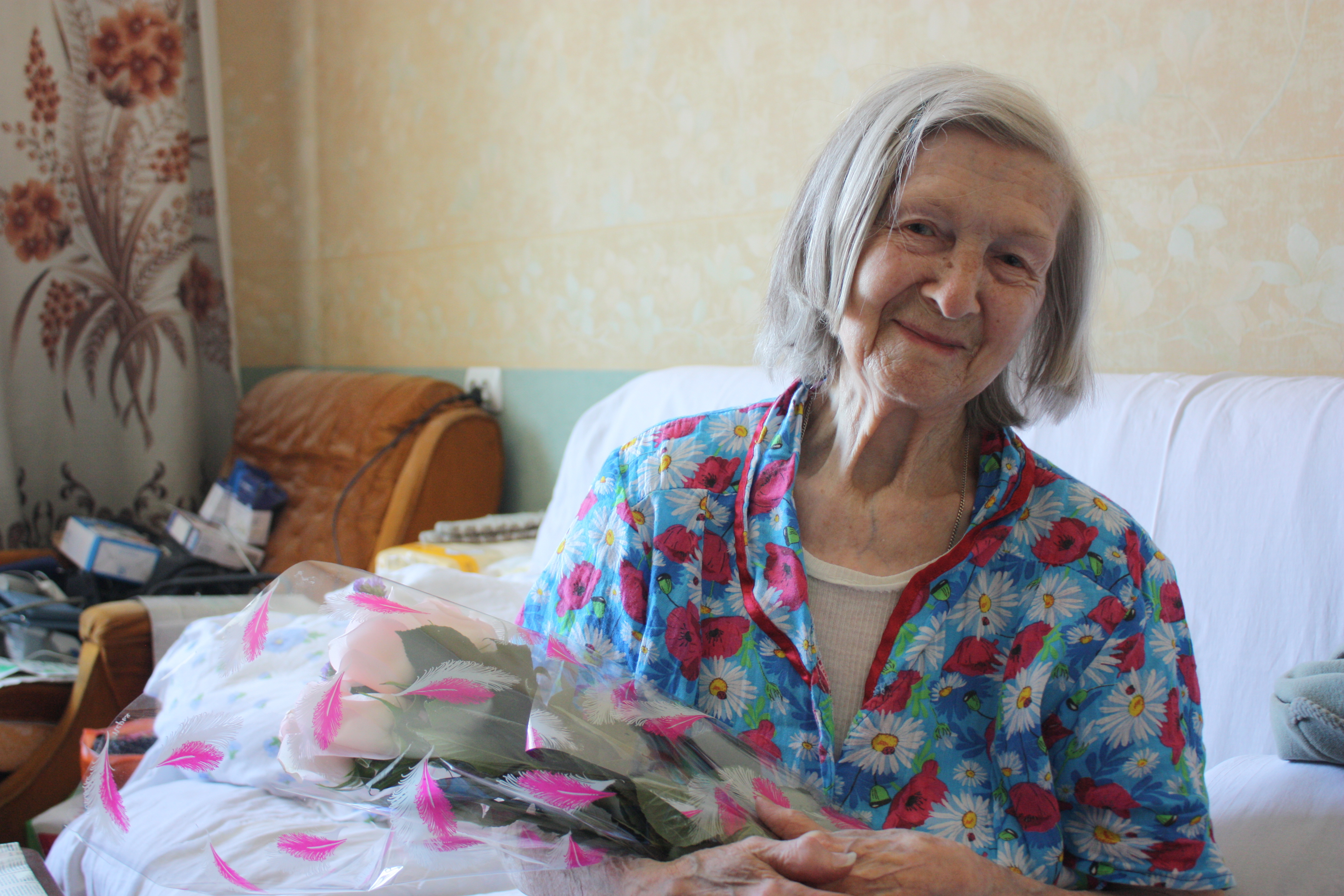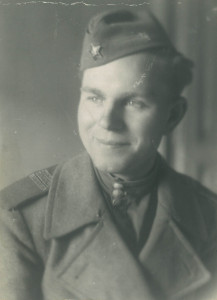Story of a Woman Who Witnessed WWII
763 views / 9 May 2015
Victory Day is a sacred date for my country. This is the day, when all my compatriots gather in different cities to commemorate the heroes of World Word II: those who defeated Nazi Germany, saving the world from fascism.
As years pass by, the number of people who lived through those historic events grows smaller and smaller. The more valuable, however, become their memories and stories.
By Anastasia Fistashka
This lovely woman is my grandmother. Her name is Nadezhda Matveeva, 93, and she is a veteran of World War II.
When Nazi Germany invaded the Soviet Union on June 22, 1941, Nadezhda was a 20-year old student of Moscow Aviation Institute. Light-hearted and young, she bravely bore all misfortunes and tried to stay optimistic even during the hard times of the war.
As many of her friends and fellow students, Nadezhda was a true patriot of her country. She was eager to help soldiers whenever she could and decided to become a nurse in hospital.
“A lot of wounded were brought to Moscow. And we had to be on duty here: make bandages, injections and other necessary things,” she said.
At that time, many hospitals were located in school buildings, because all children were evacuated to parts of the Soviet Union not touched by direct combat. Nadezhda started her duty after university classes and stayed there until late at night. She also worked at the Sklifosovsky Institute of Emergency Medicine and this experience left a deep scar in her memory.
“This was the first day of our duty … no, not even a duty, we just went there after classes … We saw how they amputated legs, carried out operations. We saw it all. It was terrible …,” my grandmother recalled.
Many of her fellows volunteered to work in military trains. The trains transferred injured soldiers from the front and were in dire need of medical personnel.
“Everybody was burning with enthusiasm to help. Many went with these trains to take care of the wounded,” my grandmother explained, adding that she had decided to stay in Moscow and work there.
Nadezhda also recalled how women wrote letters to unknown soldiers on the front to support them in difficult situations and say a couple of warm words. Thus started her correspondence with young man named Petya, and their communication continued on and off for several years.
“I wrote on the envelope: to someone who does not receive any letters. And then: Dear friend, I would like to share with you warm, gentle words, to somehow encourage you in such a difficult situation on the front,” she recalled her first letter.
In October 1941, her university started the evacuation of students.
The final destination for evacuees was the beautiful city of Alma-Ata, Kazakhstan. But the way there was long and full of hardship. The journey lasted about a month as railways were overloaded with trains coming from the front. Evacuees hardly ever had an opportunity to take a shower. The train was packed so full that several people had to sleep on one berth, taking turns.
When my grandmother finally arrived in Alma-Ata, she was charmed by its beauty. The original Kazakh meaning of the city’s name is “Father of Apples”. The place is well-known as the birthplace of delicious apple sorts, which helped my grandmother to survive the times of famine.
“Sometimes, there were too many apples. The locals invited students to gather them and then we could load up,” she said.
During evacuation, Nadezhda and her friends lived in barracks, twenty people in one large room. Once they arrived, there were no beds and they had to sleep on mattresses on the cold floor.
“We were given only 300 grams of bread for the whole day. Nothing else. But we were young, enthusiastic,” she said, adding that everybody tried to stay optimistic despite hard times.
At the same time, her family was struck by a terrible tragedy: her elder brother Anatoly was killed on the front. Anatoly was a lieutenant of armored forces. According to historical reports, he was the first man to rush into the city of Naro-Fominsk after its liberation and to raise a Soviet flag on a high-storey building.
The death of her elder brother was a big blow to Nadezhda’s father.
“My father died soon… He took Tolya’s death very hard [Tolya is short name from Anatoly],” Nadezhda said, adding that she learned the sad news from her mother’s letter.
After a year and a half in evacuation, my grandmother returned to Moscow and continued her studies at the university. In fact, her classes also continued during the evacuation. She had worked in an aircraft factory as an intern for 12 hours a day. Sometimes her work days lasted 24 hours, and she had to sleep directly under the machine.
She finished her studies in 1944 and started working as an engineer. At the same time, she became close friends with her former fellow student, who had just returned from the front. Eventually, they ended up marrying each other in 1946, when the war was over.
However, a few years later, she suddenly received a letter from her pen pal, Petya, from whom she hadn’t heard anything for a long time. Petya said that he was coming to Moscow and wanted to meet her to learn each other in person. When the young people met, they had a long walk in the city center and Petya was charmed by my grandmother’s intelligence and beauty.
Later he wrote her a letter in which he confessed his love to her.
“Nadya, my friend, how hard is it for me to leave Moscow. I do not know yet whether my words will echo into your soul, or drop like a stone into an unrequited abyss. But I know that in my heart I’ll save the most elevated, most sincere and tender feelings for you. And if I have no right to be loved, I have a natural right to love and confess my love to my beloved one,” the young man wrote.
However, the romantic love story ended before getting started. Nadezhda, faithful to her principles and her husband, had to reject him and break all the contacts.
In her last letter, she wrote: “Too late. If I had heard it all before, everything would be different. And now it’s too late. Don’t write to me anymore. I will not be able to answer you. Goodbye, Petya. I wish you to be happy from all my heart.”
Nadezhda’s husband, my grandfather, became paralyzed in 1958 at the age of 36 due to severe wounds received on the battlefield during the war. My grandmother took care of him until his death in 1984.
After her last letter, Petya disappeared from her life. She has never received any letters from him or saw him again.
The war had changed my grandmother’s life completely. It brought sorrow to her family, taking the lives of her brother, her father, and later, her husband.
But having lived through the hardships of the war, my grandmother remained a kind and gentle woman. The war was devastating, but it has not withered people’s hearts. Strong patriotism and optimism helped the Soviet people to endure the hard times and start their lives anew, always remembering those who sacrificed themselves to protect their country and save the world from fascism.
The views and opinions contained in this article are those of the author. They do not necessarily represent the views of ‘Russian Accent’.
comments (2)
POST A COMMENT
Your email address will not be published. Required fields are marked *




Awesome!
Thank you!